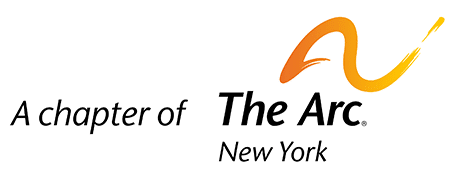By Stanfort Perry, Executive Director, AHRC Nassau
Overnight, the world changed because of Covid-19. For many, time also slowed down, unmarked by daily routines or connections. Within AHRC’s network of disability nonprofits on Long Island, the pace sped up to a heart-pounding sprint. Despite uncertainty around what Covid was or how it spread, decisions had to be made – fast – that would impact the lives of thousands of people with developmental disabilities and staff.
Every moment counted for the management team—even as state guidelines shifted and loved ones became sick. Almost a year and an half later, our network of disability nonprofits are starting to thrive again. New York State OPWDD and the Division of Quality Improvement recently renewed the COMPASS designation for AHRC Nassau and Citizens Options Unlimited, a distinction held by only four agencies in New York State.
We’re still here – and in fact stronger than ever before. It’s due to our exceptional staff, who were engaged and empowered through a more compassionate leadership style. With so many unknown variables, it came not only from necessity, but also from the heart. Here are a few insights we are continuing to build on as a leadership team dedicated to compassionate leadership:
1.) Compassion begins with genuine understanding. Active listening was at the forefront of everything we did, from surveying staff to understanding how fellow agencies were faring under government guidance and reports. To make such information actionable, a culture of candid and transparent leadership was vital.
2.) Stay connected and share information promptly and honestly. Transparency matters as much as accountability throughout staff communications. Along with virtual forums and meetings, the agency shared videos, personal messages of support on social media from fellow staff and self-advocates, as well as consistent updates on how the agency was working in response to changing guidelines and needs.
3.) “Standing together” means everyone feels connected and seen – in good times and bad. The agency created regular opportunities to come together on issues changing the fabric of our community, from a virtual video vigil giving recognizing the passing of people supported to virtual lunch-and-learn events on “Understanding and Eradicating Systemic Racism.”
4.) New challenges require new solutions. Vaccine pods were created along with an advocacy campaign to ensure people supported and staff were safe. In addition to new virtual programs for people supported, the agency secured a grant to provide tablets for each residence toward conducting telehealth visits and communication with families.
5.) Saying thank you matters as much as acts of gratitude. Staff were empowered to recognize each other through videos, chalk drawings, signs and messages of support on social media. In group homes, meals from favorite restaurants were delivered by team members of other departments who wanted to share their appreciation for those providing direct care.
As we look ahead, I will continue to value the lessons learned from the pandemic, but especially the people I worked with who made a period of challenge one of opportunity.

